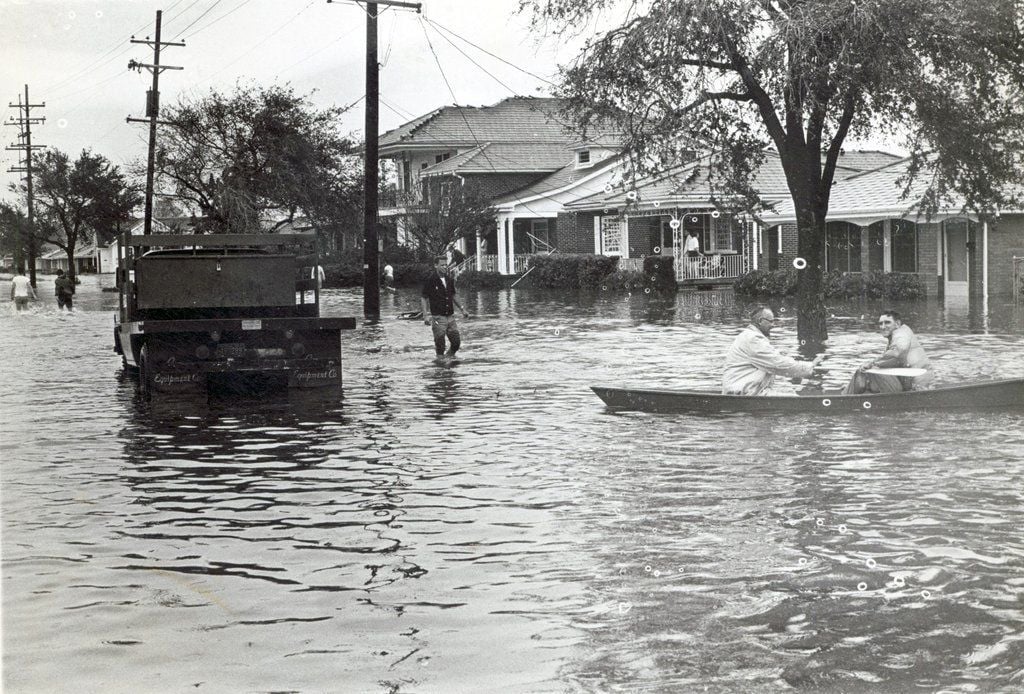In September 1965, Hurricane Betsy was the worst storm that ever hit the coast in Louisiana. Up until Katrina, it was the benchmark in national disasters in the minds of residents because it caused such a disaster on the people that it left 76 people dead (reports vary on the number) and cost more than one billion dollars in damages. If the severity of the havoc caused by Betsy wasn’t clear, the name was retired from the national cyclone naming list. When Louisiana Senator Russell Long requested the presence of President Lyndon B. Johnson it seemed like it was futile because of some suspected tension. However, after stressing the severity and how politically significant the visit was, it seemed like he came immediately after their phone call. Johnson claimed he would break through the red tape and help in any way possible.
In 2005, the residents of New Orleans again had to suffer through a hurricane that would shake society’s core as a whole. The likelihood of encountering an individual who wasn’t aware of the carnage left by Hurricane Katrina seemed surreal; however, the 43rd President of the United States, George W. Bush, proved it wasn’t impossible. Why did the 24-hour news cycle not reach Bush during his 5-week vacation? He embraced the peace and seclusion that being away granted him, which in turn caused many feelings ranging from panic, fear, and abandonment from the nation that needed him.
“While all this was going on, the president of the United States remained aloof from the disaster. Day after day, George W. Bush continued a long-planned vacation at his 1,600-acre Prairie Chapel Ranch in Crawford, Texas, and his staff didn’t want to burden him with detailed information about the situation on the Gulf Coast. When Katrina made landfall, Bush had been on holiday at his ranch for 27 days, according to a tabulation kept by CBS News.”
One example in particular that assisted the documentary with stressing how alone the patrons felt was the footage of those who lost their lives. During the interviews, they collectively said they were perplexed on why family members were not being retrieved and shown any sense of humanity by the government. I don’t recall in any of the acts we watched if they said that Bush or even Brown had an official recovery plan. It just showed that dead or alive people were not seen as such by the president. Flying over them just instilled the message that separatism existed and because they were either black, poor, or both meant that they were on the time of those who simply chose to not see the severity of the situation. As he remained aloof his career began to plunder. Somewhat symbolic that his career, like New Orleans, may never return to the pinnacle it once was.
https://64parishes.org/entry/hurricane-betsy
https://www.usnews.com/news/the-report/articles/2015/08/28/hurricane-katrina-was-the-beginning-of-the-end-for-george-w-bush